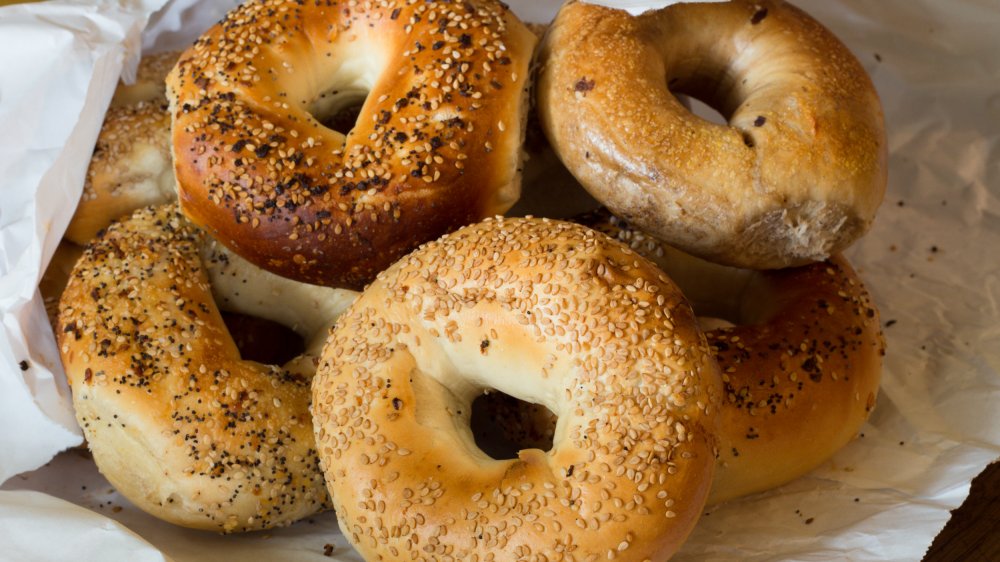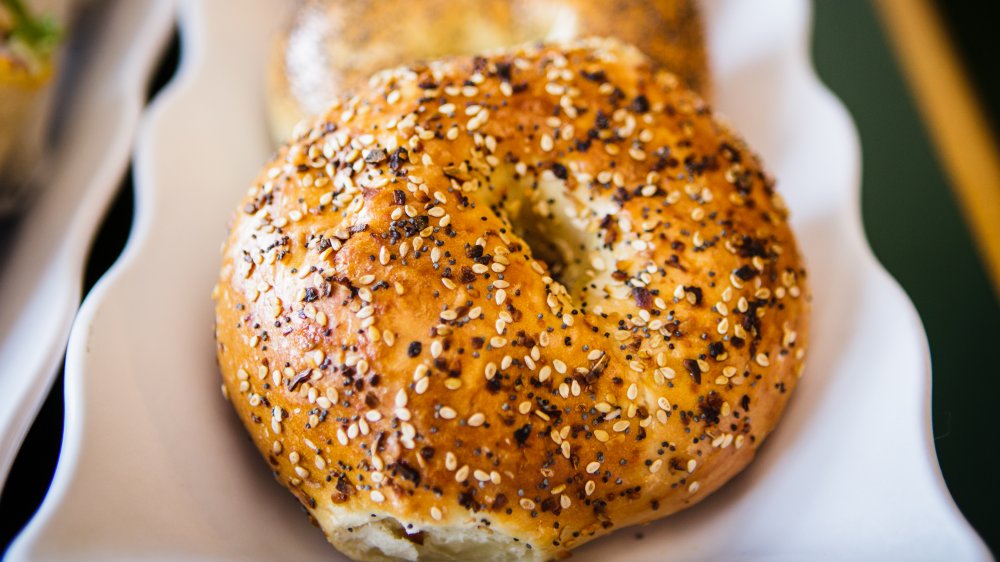The Popular Myth About New York Bagels You Can Stop Believing
New York bagels are the best, and that isn't an opinionated slight to your beloved local non-New York bakery. It's actually a matter of science and technique. You might have always heard that it's the water that makes New York bagels so good (via So Yummy). It's a popular myth, but while it is true that the water is different, it likely isn't the primary reason the bagels are better.
According to Food and Wine, around 90 percent of New York City's water comes from Catskill and Delaware watersheds and takes between three months to a year to travel the century-old network of pipes into the city. Along the way before and after the water is treated for safe consumption, the water picks up different minerals but remains low in calcium and magnesium. That means the water is "soft," and is even some of the softest water in the country. Thanks to the low levels of calcium and magnesium, the water reacts differently when it encounters and helps develop the gluten in bagel dough. However, you can artificially change the softness of water in other locations.
That's why the main factor that makes New York bagels so delicious is all about the method that's used to make them. So, you can follow the same steps to get as close as you possibly can to New York bagels from home, wherever that might be.
It isn't just about the water, though
One step of New Yorker bagel methodology is allowing the bagels to proof properly. To do so, New York City's best bagel bakeries let the dough sit in the cooler for a couple of days to achieve a great proof during which the yeast slowly ferments (via Reactions). What you end up with is a lot more flavor — as many as 50 additional flavor compounds when you ferment the yeast, according to So Yummy. So, the best bagels do use the city's soft water, but taking the time and effort into making bagels slowly is what actually makes them taste so good. Time is flavor, after all.
Another key part of how New Yorkers make their delicious bagels is boiling the dough for anywhere from 30 seconds to three minutes before baking. This helps lock liquid moisture into the dough so it stays soft and doughy on the inside and develops a shiny thick and crisp crust on the outside. Companies that mass-produce bagels may not want to invest time in this step and instead avoid boiling before baking, but it just isn't the same (via Reader's Digest).
So, forget about the myth of New York's water. It probably plays a part, but the key seems to be the techniques of proofing well and boiling prior to baking. It takes more time, but the clearly amps up the flavor and texture enough to make it worth the extra effort.

